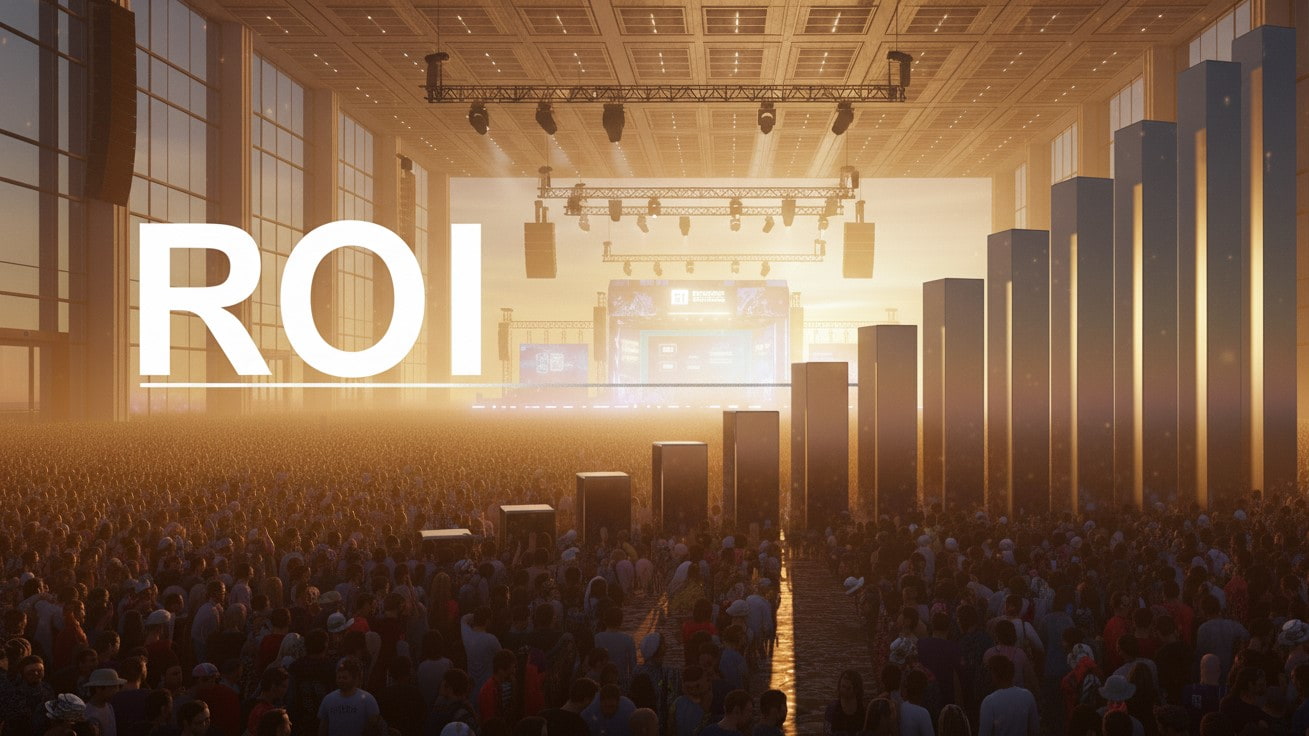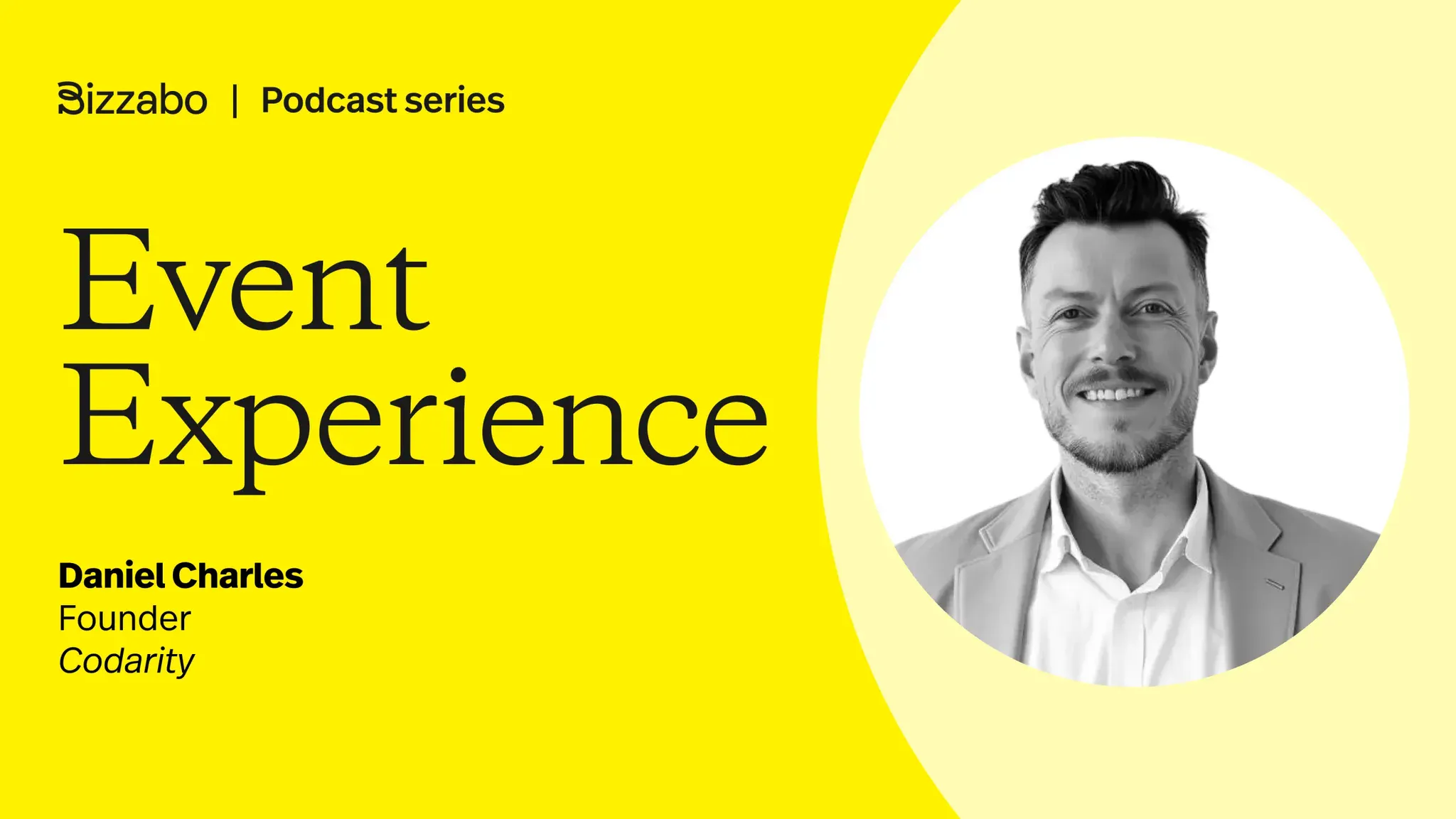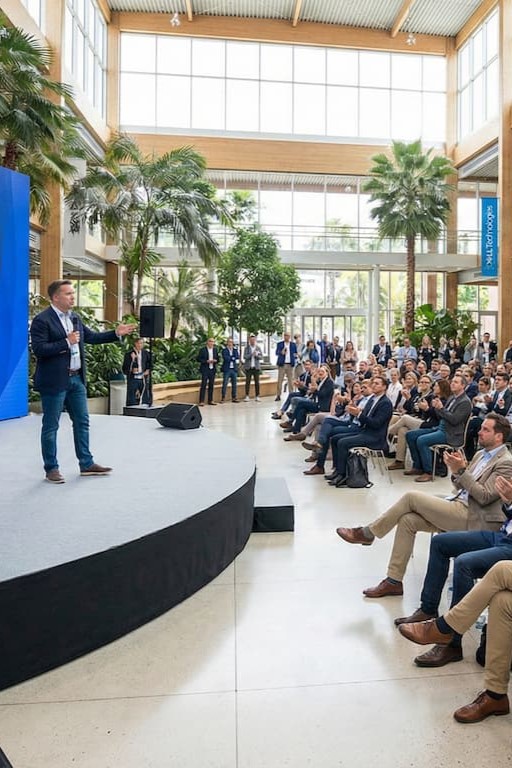Dan Charles
05/09/2025
Table of Contents

Event marketing budgets jumped 23% in Q1 2024 across the UK. The fastest growth in over a decade.
Yet most event professionals still measure success the same way they did in 2019. Registration numbers, attendance counts, post-event surveys.
I see this disconnect everywhere. Budgets flowing toward “digital-first strategies” while the actual digital transformation happens invisibly, beyond most marketers’ awareness.
The B2B events industry is projected to grow from $1.4 trillion to $2.3 trillion globally. That represents a compound annual growth rate of 5-6% over the next decade.
Most event professionals are missing this opportunity entirely.
Key Takeaways
The invisible transformation: AI is restructuring attendee decision journeys through research tools and recommendation engines that most event marketers don’t track
Human-AI integration wins: The most successful approach uses AI for background qualification and personalization while preserving human creativity and relationship building
Account-based marketing at scale: AI can process thousands of data points to deliver personalized experiences, removing tedious work for both attendees and organizers
ROI measurement evolution: Traditional metrics like cost-per-registration become less relevant as AI enables prediction of lifetime value and engagement quality
Implementation gap creates opportunity: While 63% of planners are learning AI, early movers can capture competitive advantage by starting with simple CRM integrations
The Invisible Qualification Process
Here’s what’s actually happening while event marketers focus on traditional metrics.
Potential attendees now use AI tools to research speakers before registering. They compare event agendas across multiple platforms. They receive personalized recommendations about which sessions align with their interests.
By the time someone registers for your event, they’ve completed an AI-assisted evaluation process most event marketers don’t know exists.
We’re optimizing for metrics that represent maybe 20% of the actual decision-making journey. The other 80% happens in AI-powered research tools, recommendation engines, and automated comparison systems.
This invisible qualification process explains why traditional event marketing feels increasingly ineffective. You’re measuring the end result while missing the entire decision journey.
The Human-AI Integration Gap
Event professionals resist AI because they believe events must be 100% human-to-human.
This thinking misses the real opportunity. AI doesn’t replace human connection. It enables better human connection by handling qualification and personalization in the background.
Consider this practical example: AI processes thousands of attendee surveys to identify unique insights. When you interact with that attendee at the event, you can personalize their experience based on data-driven understanding of their interests.
The result? You deliver those “wow” moments that create lasting positive memories while keeping your event brand at the forefront.
People overthink AI implementation. Even basic integration delivers immediate value.
Connect an AI system to your CRM. When attendees check in, they receive personalized recommendations for exhibitions, speakers, and networking opportunities based on their profile data.
Account-Based Marketing at Event Scale
AI can crunch data at scale and use that information to target attendees with content they actually want to see.
Think of it as account-based marketing for events. Instead of broad, generic messaging, you deliver highly targeted experiences to each attendee segment.
This approach removes the tedious, repetitive work both attendees and organizers hate doing. No more manual session selection. No more generic networking suggestions. No more irrelevant exhibition recommendations.
The AI handles pattern recognition across massive datasets while you focus on creating meaningful human interactions.
Currently, 55% of marketers admit they’re failing to extract full potential from their existing event data. They have the information needed for personalization but lack the tools to process it effectively.
Hidden Pain Points in Plain Sight
AI reveals pain points you never knew existed but your business already solves without knowing it.
Your attendee data contains patterns that indicate unmet needs, optimal session timing, preferred networking styles, and content gaps. These insights exist in your current systems.
Most event professionals can’t see these patterns because human analysis doesn’t scale to thousands of data points across multiple events and years of attendee behavior.
AI processes this information automatically and surfaces actionable insights that inform your ideal client personas and marketing campaigns.
The result? Better ROI through addressing underlying pain points that traditional analysis never revealed.
The Silent ROI Restructure
While event professionals focus on attendance numbers, AI quietly restructures how marketing effectiveness gets measured and optimized.
Traditional metrics like cost-per-registration become less relevant when AI can predict attendee lifetime value, optimal content sequences, and personalized engagement patterns.
New frameworks measure engagement quality over quantity. Relationship depth over contact volume. Long-term value creation over immediate conversions.
Event-led growth strategies already show this transformation. Organizations implementing these approaches were 75% more likely to see growth rates over 50% in 2023.
Organizations using event-led growth strategies were also 140% more likely than those not using this approach to achieve more than 50% growth, reinforcing the transformational impact of events in driving business success.
The Implementation Reality
63% of event planners say they’re in learning mode with AI, but most believe it will fundamentally transform event planning and execution within 24 months.
The gap between recognition and implementation creates opportunity for early movers.
Start simple. Connect AI tools to existing systems rather than rebuilding your entire marketing stack.
The most effective approaches combine AI-powered event marketing systems with human expertise to create seamless attendee experiences while maximizing ROI.
Focus on removing friction from attendee experiences while gathering better data about their preferences and behaviors.
Use AI to inform human decisions rather than replace human creativity and relationship building.
The events industry sits at the intersection of massive growth opportunity and technological transformation. Event marketing budgets continue growing because organizations recognize events’ impact on revenue generation.
The question isn’t whether AI will transform event marketing. The transformation already started.
The question is whether you’ll participate in the invisible revolution or continue measuring yesterday’s metrics while your competitors capture tomorrow’s opportunities.

Behind the Podcast: What Event Businesses Really Need to Break the Feast-or-Famine Cycle

The Real AI Revolution in Events Isn’t What Cvent’s Selling

Why Your Event Business Doesn’t Need More Martech: It Needs a Coherent Message



